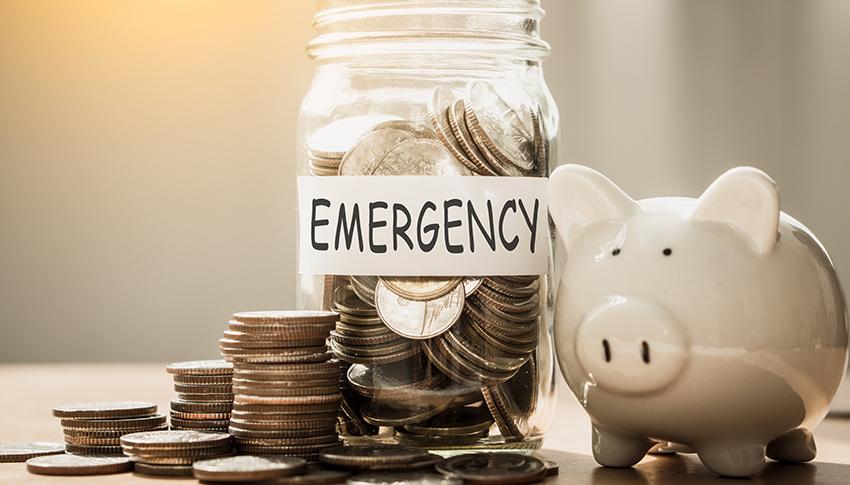We’ve all been there – that sudden car repair, an unexpected medical bill, or a surprise home fix. Life has a funny way of throwing curveballs when we least expect them. But here’s the thing: while we can’t predict these sudden expenses, we can prepare for them. Enter the emergency fund. Think of it as your financial safety net or a trusty sidekick ready to swoop in and save the day. But beyond just covering costs, having an emergency fund can bring a profound sense of mental peace. Let’s dive into why setting up an emergency fund is one of the smartest moves you can make, both for your wallet and your well-being.
Building Your Safety Net: Why an Emergency Fund Matters
Imagine being able to handle life’s unexpected surprises without breaking a sweat. That’s exactly what an emergency fund does for you. It’s a financial cushion you can fall back on if something goes wrong, like a sudden job loss, unexpected medical expenses, or urgent home repairs. Building this safety net means setting aside money solely for emergencies. It’s like a backup plan for your budget that keeps you from scrambling for cash when things go south.
Not only does having an emergency fund provide financial relief, but it also offers mental peace. Knowing you have a financial buffer reduces stress and anxiety, allowing you to focus on solving the problem rather than worrying about how to pay for it. Here’s why an emergency fund is a game-changer:
- Provides a financial safety net: Acts as a barrier between you and high-interest debt.
- Boosts confidence: Gives you the assurance to take calculated risks or explore new opportunities.
- Peace of mind: Reduces anxiety about the what-ifs in life, helping you sleep better at night.

Smart Savings Strategies: How to Start Your Emergency Fund
Building an emergency fund doesn’t have to be complicated. Start small, aiming for at least $500 initially, and gradually increase it over time. Here are a few smart strategies to help you get started:
- Automate Your Savings: Set up automatic transfers from your checking account to your savings account to make saving feel effortless.
- Cut Unnecessary Expenses: Review your monthly spending and identify areas where you can cut back, even if it’s just by a little.
- Use Windfalls Wisely: Bonuses, tax refunds, and unexpected gifts can give your emergency fund a quick boost.
To get a clearer picture, consider the following table that lays out a simple plan:
| Month | Goal | Amount to Save |
|---|---|---|
| 1 | Kickstart Fund | $100 |
| 2-4 | Build Consistency | $50/month |
| 5-12 | Grow Your Fund | $75/month |
By following a structured approach and making saving a habit, you’ll be well on your way to achieving financial peace of mind.

Maintaining Your Fund: Tips to Keep Your Savings Intact
Keeping your emergency fund healthy is crucial, and it doesn’t have to be complicated. First, automate your savings. Set up automatic transfers to your emergency fund each payday to ensure consistent growth without the temptation to spend. Additionally, review your budget monthly, adjusting any unnecessary expenses to increase your savings if needed.
<p>Another key tip is to keep your funds accessible yet separate. Use a separate savings account for your emergency fund to avoid accidental spending while ensuring it's available when truly needed. Lastly, avoid tapping into your emergency fund unless it's absolutely necessary—this discipline will help maintain your financial cushion for genuine emergencies.</p>
<table class="wp-block-table">
<tbody>
<tr>
<td><strong>Action</strong></td>
<td><strong>Outcome</strong></td>
</tr>
<tr>
<td>Automate Savings</td>
<td>Ensures consistent growth</td>
</tr>
<tr>
<td>Review Budget</td>
<td>Identify excess spending</td>
</tr>
<tr>
<td>Separate Accounts</td>
<td>Avoids accidental spending</td>
</tr>
<tr>
<td>Disciplined Use</td>
<td>Maintains financial cushion</td>
</tr>
</tbody>
</table>

The Mental Benefits: How Financial Preparedness Reduces Stress
Having a safety net like an emergency fund means you’re better prepared to handle unexpected expenses, which can significantly reduce stress. Instead of panicking about where to get the money for a sudden car repair or an unexpected medical bill, you can rest easier knowing you have funds set aside. This financial padding gives you the peace of mind to focus on other aspects of life without the constant worry of financial strain.
- Peace of Mind: Knowing you have money set aside for emergencies.
- Better Sleep: Less financial worry can lead to better rest.
- Improved Focus: Fewer money-related distractions help you concentrate better on tasks.
| Benefit | Description |
| Reduced Anxiety | Less worry about sudden expenses |
| More Control | Feel more in charge of your financial situation |
Q&A
Q&A:
Q: What is an emergency fund, and why do I need one?
A: An emergency fund is a stash of money set aside to cover unexpected expenses like medical bills, car repairs, or sudden job loss. It’s like your financial safety net. Having one can help you avoid stress and feeling panicked when life throws a curveball.
Q: How much should I aim to save in my emergency fund?
A: The general rule of thumb is to save three to six months’ worth of living expenses. This gives you a cushion to fall back on in case of emergencies. If your job or income is unstable, you might want to aim for the higher end of that range.
Q: What kind of expenses does an emergency fund cover?
A: Emergency funds should be used for unexpected and necessary expenses, not for regular bills or planned purchases. Think medical emergencies, car repairs, urgent home fixes, or sudden travel for family emergencies.
Q: How can having an emergency fund contribute to mental peace?
A: Knowing that you have a financial buffer in case of unexpected events can significantly reduce anxiety and stress. It provides a sense of security and stability, allowing you to focus on solving the problem rather than worrying about how to pay for it.
Q: How do I start building an emergency fund if I’m on a tight budget?
A: Start small. Even saving a bit from each paycheck adds up over time. Consider automating your savings so a portion of your income goes directly into your emergency fund. Review your budget for any areas where you might cut back, like dining out or subscriptions you don’t use.
Q: Where should I keep my emergency fund?
A: Your emergency fund should be easily accessible but not too easy that you’re tempted to dip into it for non-emergencies. A high-yield savings account works well because it’s separate from your checking account but still allows quick access when you need it.
Q: When is it okay to use my emergency fund?
A: You should tap into your emergency fund for true emergencies only—situations that affect your health, safety, or basic living conditions. Before using the funds, ask yourself: Is this unexpected? Is it necessary right now? If it’s a planned expense or something that can wait, it’s best not to use your emergency fund.
Q: How do I rebuild my emergency fund after using it?
A: Rebuild your fund just like you started it: consistently save a portion of your income until you’ve replenished what was used. If possible, temporarily redirect extra cash like bonuses or tax refunds to your emergency fund.
Q: Can having an emergency fund affect my emotional well-being in the long term?
A: Absolutely. Consistently managing and maintaining an emergency fund can foster a sense of control over your finances. This ongoing financial confidence can contribute to lower overall stress levels and a more stable emotional state, knowing you’re prepared for whatever comes your way.
Q: Any tips for maintaining the habit of saving for an emergency fund?
A: Set achievable goals and celebrate small milestones. If you save $500, give yourself a high-five. Stay disciplined and try to make saving a regular part of your budget. Sometimes, it helps to remind yourself of the peace of mind you’re creating for the future.
Got more questions about building an emergency fund? Drop them in the comments below!
The Way Forward
And there you have it! While none of us enjoy thinking about emergencies, having an emergency fund can really help keep future stress at bay and ensure a smoother ride through life’s unpredictable moments. Remember, it’s all about taking small, steady steps to build that financial cushion. You’ll thank yourself when an unexpected expense pops up and you can handle it without losing sleep. So start today, and let the peace of mind begin. Thanks for sticking with me through this article, and here’s to a more secure and mentally peaceful future!


